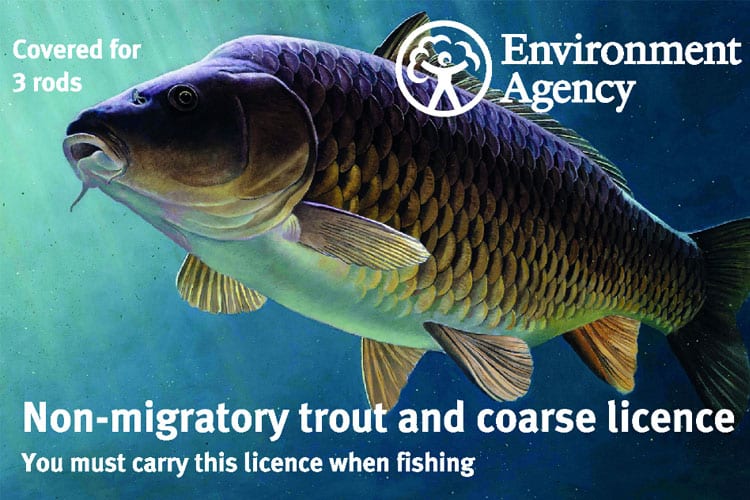It doesn’t matter if you’ve been fishing for several years or have only recently gotten the angling bug; you must invest in an Environment Agency Rod Licence. Basically, a rod licence or fishing licence, as many people refer to it, is documentation that gives you the right to legally fish using either a fishing pole or fishing rod on bodies of water up and down the UK. While it was available as a physical card in the past, there are now also digital versions.
Your rod licence will show the number of rods your licence covers (more on that later), the species of fish you are allowed to fish for, and the licence expiry date.
What kind of Rod licence do you need?
It is important to understand that there is more than one type of rod licence. The type you need will depend on the type of fish you want to try and catch. There are two different licences to choose from in the UK:
- Trout and Coarse Fish and Eel Licence
- Salmon and Sea Trout Licence
What is the Trout and Coarse Fish and Eel Licence?
The Trout and Coarse Fish and Eel Licence is the most common and popular fishing licence. This gives anglers the legal right to try and catch so-called coarse fish like perch, bream, roach and carp, along with those who want to spend time in fisheries and rivers trying to land Stillwater trout. Do you intend on fishing in local ponds and lakes, rivers and lakes run by angling clubs or commercial coarse fisheries? The Trout and Coarse Fish and Eel Licence is likely the right one for you.
The trout allows you to fish using one rod on drains, streams, and rivers for non-migratory trout and with a maximum of 2 rods on ponds, lakes and reservoirs for freshwater fish and non-migratory trout.
What is the Salmon and Sea Trout Licence?
Alternatively, if you want to catch sea trout or salmon, you must invest in the more expensive Environment Agency Salmon and Sea Trout Licence. This more expansive licence provides you with the legal right to fish for freshwater fish and non-migratory trout as outlined above, along with seat trout and salmon.

This licence gives you the legal right as an angler to fish on canals, streams and rivers for non-migratory trout, sea trout and salmon with just one fishing rod and on ponds, lakes and reservoirs for non-migratory trout, sea trout and salmon with a maximum of two fishing rods.
Who Needs a Fishing Rod Licence?
Anyone over the age of 13 years old and who wants to try and catch eels, smelt, freshwater fish, trout, and salmon using a rod and a line or a pole anywhere in England or Wales need an Environment Agency Fishing Licence. The one exception to this rule is fishing on the River Tweed, as you don’t require a licence to catch fish there.
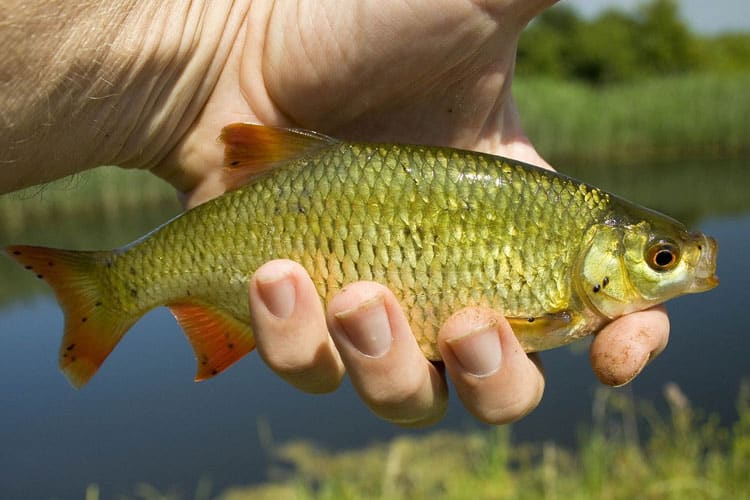
What About Children Older Than 13, Do They Need to Buy a Rod Licence?
Although children over 13 years old need to obtain a rod licence, it does not cost a penny if they are between 13 and 16 years old.
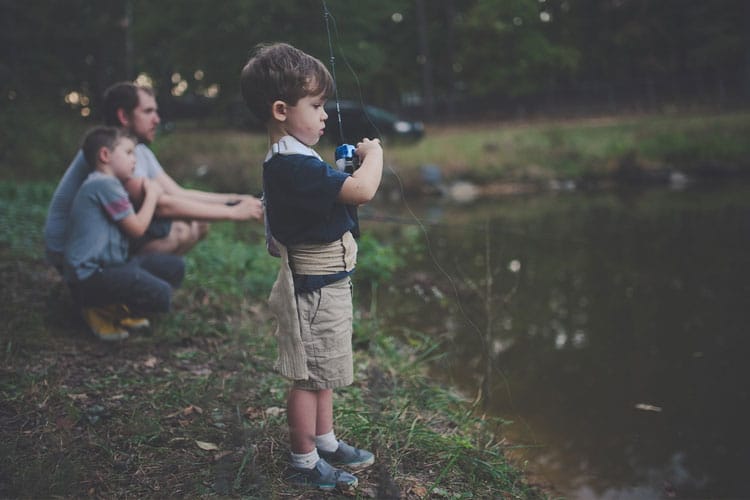
Are You Allowed to Fish Anywhere With a Rod Licence from the Environment Agency?
This is something that many new and inexperienced anglers misunderstand. The rod licence means you are allowed to fish. After you have invested in a licence, you will still need to pay the fee requested by venues such as angling clubs, commercial coarse fisheries, and land owners who allow fishing on their rivers, canals, ponds, etc and lakes.
Interestingly, if you intend to do sea fishing, you do not need to obtain a licence from the Environment Agency.
Is there a Close Season For Fishing In the UK? When Am I Allowed to Fish?
Between march 15th and June 15th every year, there is a close season on drains, streams, rivers and the majority of still waters in the country that are classified as Sites of Special Scientific Interest, as well as some canals and most of Suffolk and Norfolk Broads. The Glorious 16th is the name given to the date when this close season is over – June 16th.
However, there is no close season on landlocked still waters like canals that are not classified as canalised rivers, ponds, reservoirs, lakes and commercial coarse fisheries. You can fish on these throughout the year with a rod licence.
How Do You Get an Environment Agency Rod Licence?
You can either purchase your fishing rod licence through the official UK government website or by calling the telesales service number for the Environment Agency on 0344 800 5386 between 8 am and 6 pm, Monday to Friday, apart from on public holidays.
Although in the past you could go along to your local Post Office and buy a rod licence, as of January 16th, 2023, this is no longer an option.
How Much Does a Rod Fishing Licence Cost in the UK?
The question of how much a rod licence costs is not as straightforward to answer as you may imagine, as there are various options. You must decide whether to buy a Trout, Coarse Fish and Eel licence or a Salomon and Sea Trout Licence. Once you know the license you want, you then need to know whether you want a 1-day licence, 8-day licence or 12-month licence.
From April 1st 2023, the prices for rod fishing licences will change. If you buy before then and your licence begins on or before March 31st 2023, you will need to pay either £6, £12, or £30 if you are buying a Trout, Coarse Fish and Eel Licence for 1-day, 8-days or 12-months, or £12, £27 or £82 if you are buying a Salmon and Sea Trout licence for the same respective durations.
If your licence starts on or after April 1st 2023, for a Trout, Coarse Fish and Eel licence, you must pay either £6.60, £13.20 or £33 for a 1-day, 8-day or 12-month licence. If your licence starts, buying a Salmon and Sea Trout licence will cost you £12.60, £28.30 or £86.10 for a 1-day, 8-days, or 12-month licence, respectively.
Are There Any Concessions or a Disabled Rod Licence?
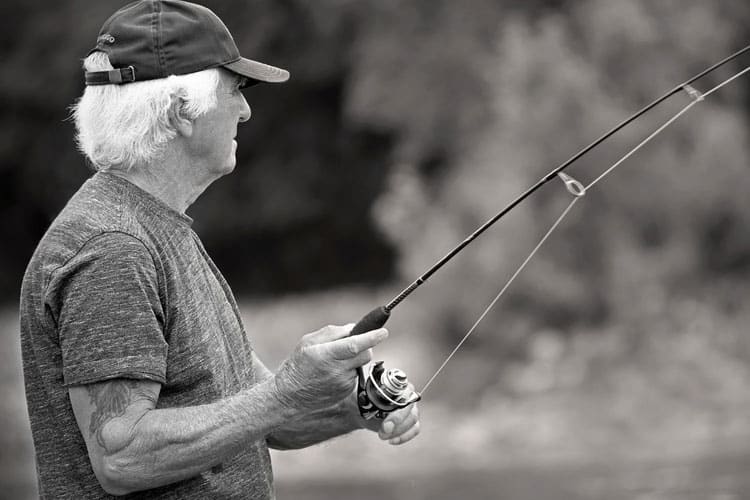
The simple answer is yes.
Suppose you are over 65 years old or have your National Insurance Number and are receiving Disability Living Allowance or Personal Independent Payment at any rate. In that case, you can apply for a reduced price or a disabled rod licence. You can only buy a 12-month licence for either Trout, Coarse Fish, Eel, Salmon, or Sea Trout if you buy a senior, disabled licence. These prices are on or before March 31st 2023, for the two types, £20 and £54, respectively. If your licence starts on or following April 1st 2023, the prices are £22 and £57.40, respectively.
Where Can You Buy a Rod Licence?
Although we touched on it already, it bears repeating. Rather than going to the local Post Office to buy your rod licence in person, you can only buy it digitally now either through the government website or by calling the sales team.
As you can imagine, many people were used to the convenience of going down to the Post Office to pick up their new rod licence. The changes to how and where you can buy a rod licence were met with negativity within the angling community.
What Does a Fishing Licence Look Like?
There is nothing particularly spectacular to look at on a fishing licence. They are simply a piece of paper, and there is a sticker you can peel off that you can affix somewhere. Some anglers may put this sticker on the inside of their fishing box or on an old card they can keep in their wallet. As everything has been digitised, all the information about your licence is stored in a database.
Do You Need to Wait For Your fishing Licence to Arrive?
The great thing is that because it is all digitised and your information is stored on a database, you technically do not need to wait for your physical rod licence to arrive before fishing. You will normally receive an email or text message that you can use as evidence that you have a licence until your physical one arrives.
When Does your Fishing Licence Expire?
Your fishing licence will run out from the date you buy them for the term you bought them for, whether it’s one day, eight days or 12 months.
Can You Extend The Licence Period?
If you have bought a 1-day or 8-day and are considering extending it to a full 12-month period, you need to contact the Environment Agency’s telesales and extensions team on 0344 800 5386 between 8 am and 6 pm, Monday to Friday, apart from public holidays. You need to do this within 14 days following the initial purchase of your original licence. Even though you will need to buy a brand-new licence to cover the extended period, you will be refunded for the price of your first licence after buying the replacement.
What Can You Do If You Lose your Licence or Move Home?
You must contact the Environment Agency as soon as possible if you have lost your licence or wish to declare it stolen. You should also contact them if you move home so they can update the details they have you on their database.
What Are the Penalties For Fishing Without a Rod Licence?
If caught fishing without a valid rod licence, the penalties can be incredibly severe. EA bailiffs can legally fine you up to £2,500 if they find you fishing without a licence or if you cannot produce one. Therefore it is best to take one out with you or have proof that you have obtained one.
Remember, you need more than just a rod licence to fish anywhere. You may need to seek out the land owner’s permission or pay a small fee to the land owner or fishery owner.
How Often Could You Be Checked for Your Rod Licence?
EA bailiffs usually are the people who check to see if anglers are fishing with a rod licence or not. They can fine you, as outlined above. However, in more than 20 years of fishing in the UK, since a licence was required, the writer of this article has never been checked once.
The money that the Environment Agency receives for rod licences is used to fund the vital work it conducts to protect fish habitats in the UK, supporting angling as a healthy outdoor pastime and sport and improving the fisheries we have up and down this country. The Agency also uses some money to fund its work dealing with the serious problem of illegal fishing.
The Environment Agency benefits from angling and the money that anglers provide through their licence fees through its partnerships with important agencies and organisations like The Canal and River Trust, The Get Hooked on Fishing Campaign, The Angling Trades Association, The Rivers Trust and The Angling Trust. These organisations all work together to improve the waterways and rivers in the UK and encourage more people to fish. They distribute these funds towards angling-related projects in England and Wales.
Do you need a rod licence to fish in Scotland?
If you are an angler fishing anywhere in Scotland, except for the Border Esk region and the parts of the famous River Esk that flow through Scotland, you do not need to obtain a rod licence from the Environment Agency. As is the case in England and Wales, though, you will need to get the permission of the angling club that has the fishing rights or the landowner before you can cast off and try to land some fish.
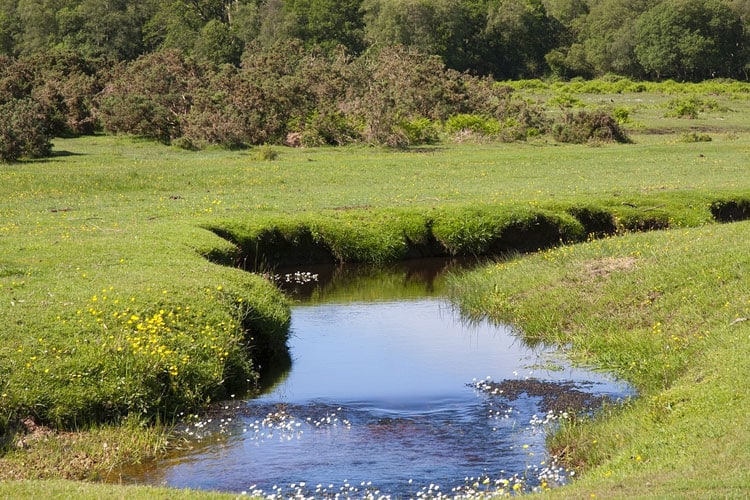
Do you need a rod licence to fish in Northern Ireland?
If you are an angler looking to fish in Northern Ireland, you must obtain a Northern Irish agency angling permit and rod licence. It’s worth noting that the system they have in place in Northern Ireland is more complicated than the one covered by the Environment Agency in England and Wales. This is split into two agencies, the Loughs Agency and the Department of Agriculture, Environment, and Rural Affairs, known as the DAERA. For more details, visit the Northern Ireland Direct Government Services website.
There are also Regional and National rod fishing bylaws that cover rod and line fishing throughout England, in addition to restrictions on the tackle, lures, and bait used. We will look into this in greater detail in another article.
Conclusion
Now that you understand the importance of obtaining a fishing rod licence and the different fishing licences and rod licences you need depending on the type of fish you are looking to catch and where you are looking to catch it, what else is left to do? You need to obtain the fishing rod licences and get out there and start fishing. For more information, tips and recommendations, check out the rest of our site, where we have many great articles and guides.

